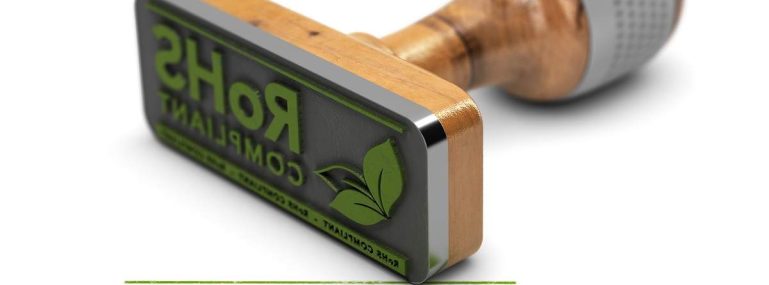The government of the United Arab Emirates (UAE) introduced regulatory controls on some product categories introduced into their market. The standardization body is the Emirates Authority for Standardization and Metrology (ESMA) for regulating the restriction of hazardous substances in electrical and electronic equipment (RoHS). This new regulation has been enforced from January 1, 2020.
UAE RoHS is like EU RoHS (European Union Directive 2011/65/EU), which restricts the use of hazardous substances in EEE and applies to all the EEE products, (Dependent on electricity or EM field, Voltage rating not exceeding 1KV DC and 1.5KV AC) imported to UAE market.
The following category of products fall under the UAE RoHS regulation:
- Large household appliances: Refrigerators, Electric stoves, Electric fans and Microwaves, are a few examples.
- Small household appliances: Vacuum cleaners, hairdryers, coffee makers and Irons are a few examples
- IT and telecommunication equipment: Computers and Printers are a few examples
- Consumer equipment: TVs, DVD players, stereos, video camera
- Lighting equipment: Electric Lamps, light fixtures & light bulbs
- Electrical and electronic tools (except for large-scale stationary industrial tools): Drills, saws, nail guns, sprayers, lathes, trimmers, blowers
- Toys, leisure and sports equipment: Video games, treadmills, talking dolls
- Medical devices (except for all implanted and infected products): In-vitro diagnostic medical devices
- Monitoring and control instruments including industrial monitoring and control instruments: Smoke detectors, fire alarms, including industrial applications
- Automatic dispensers: vending machines, ATMs
- Other EEE not covered by any of the categories above or, and falling within the definition of article one (products operated by electric power or electromagnetic field and designed to operate at a voltage of not more than 1000 volts for alternating current and 1500 volts for direct current
Products that are exempt from UAE RoHS include EEEs used for the following purposes: Military/security; outer space; specially designed equipment; large-scale stationary industrial tools; large-scale fixed installations; non-type approved means of transportation; non-road mobile machinery made available exclusively for professional use; active implantable medical devices; professional photovoltaic panels; research and development equipment for business-to-business basis; and products for general lighting covered under UAE Cabinet Decision No. 24 of 2012.
Same as EU RoHS, UAE RoHS aims in controlling the presence of below 10 hazardous substances
- Lead (Pb) (0.1%)
- Mercury (Hg) (0.1%)
- Cadmium (Cd) (0.01%)
- Hexavalent chromium (Vi) (0.1%)
- Polybrominated biphenyl (PBB) (0.1%)
- Polybrominated biphenyl ethers (PBDE) (0.1%)
- Bis (2-ethylhexyl) phthalate (DEHP) (0.1%) 8Butyl benzyl phthalate (BBP) (0.1%)
- Dibutyl phthalate (DBP) (0.1%)
- Diisobutyl phthalate (DIBP) (0.1%)
Who should apply?
A supplier or an authorised representative is responsible for the conformation and acknowledgement.
How to comply with RoHS requirements?
Below are 2 options to comply with UAE RoHS.
- Mandatory under the Emirates Conformity Assessment Scheme (‘ECAS’)
The requirements under option 1 are stated as below.
- Risk assessment to be submitted if full product assessment for RoHS is not completed.
- Applicant should provide declaration of conformity on ESMA’s template.
- Applicant can submit full RoHS test report of the complete product if available, or test reports of at least 3 critical components of the product.
- ESMA verifies the certificates and issues CoC.
A CoC is valid only for 1 year.
- Module H under the Emirates Quality Mark (‘EQM’) schemeThe manufacturing facility itself is evaluated for compliance. EQM approvals are valid for three years. Under this option;
- Applicant will execute a DoC (Declaration of Conformity);
- Applicant will submit risk assessment documents based on IEC 63000, IEC 62476 and IEC 62474;
- A technical audit and verification is conducted through ESMA undertaking a site visit at the manufacturing facility; and
- ESMA verifies compliance then issues approval for the use of the EQM on the products manufactured by the facility.
Penalties
- Products entering the country will not be cleared through customs.
- The supplier should withdraw non-compliant products from the market
- Penalties include imprisonment and fines of up to AED 30,000 according to the Federal Law No. 28 of 2001 on the establishment of ESMA.
Are you an exporter to the Middle East? It is the time you comply with UAE RoHS to have smooth business operations. Talk to our Global Compliance Specialist today and simply compliance for your organisation.





